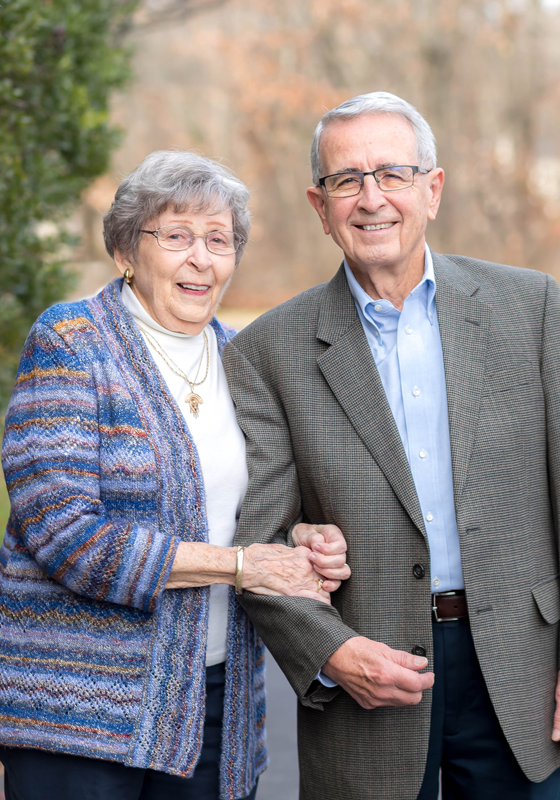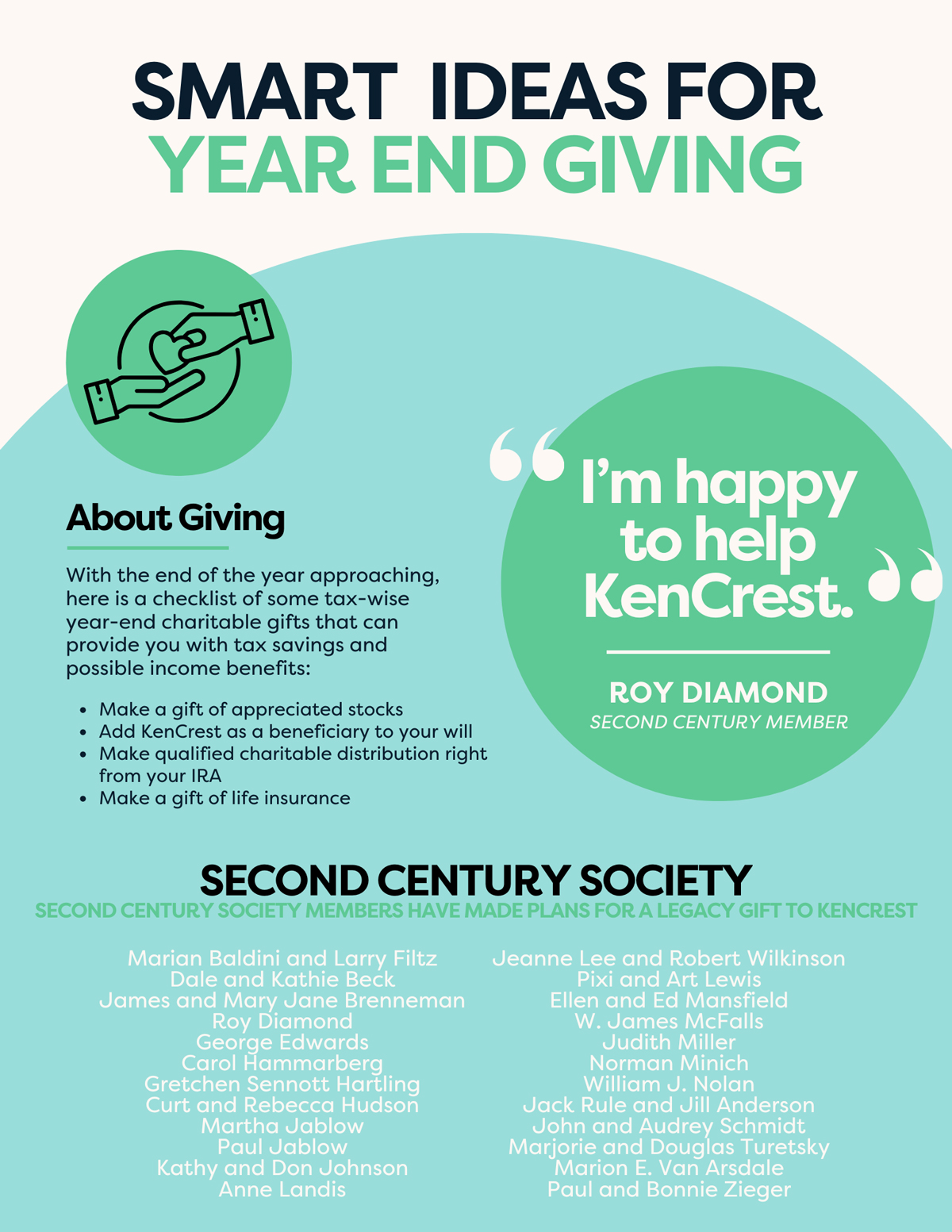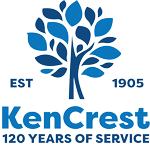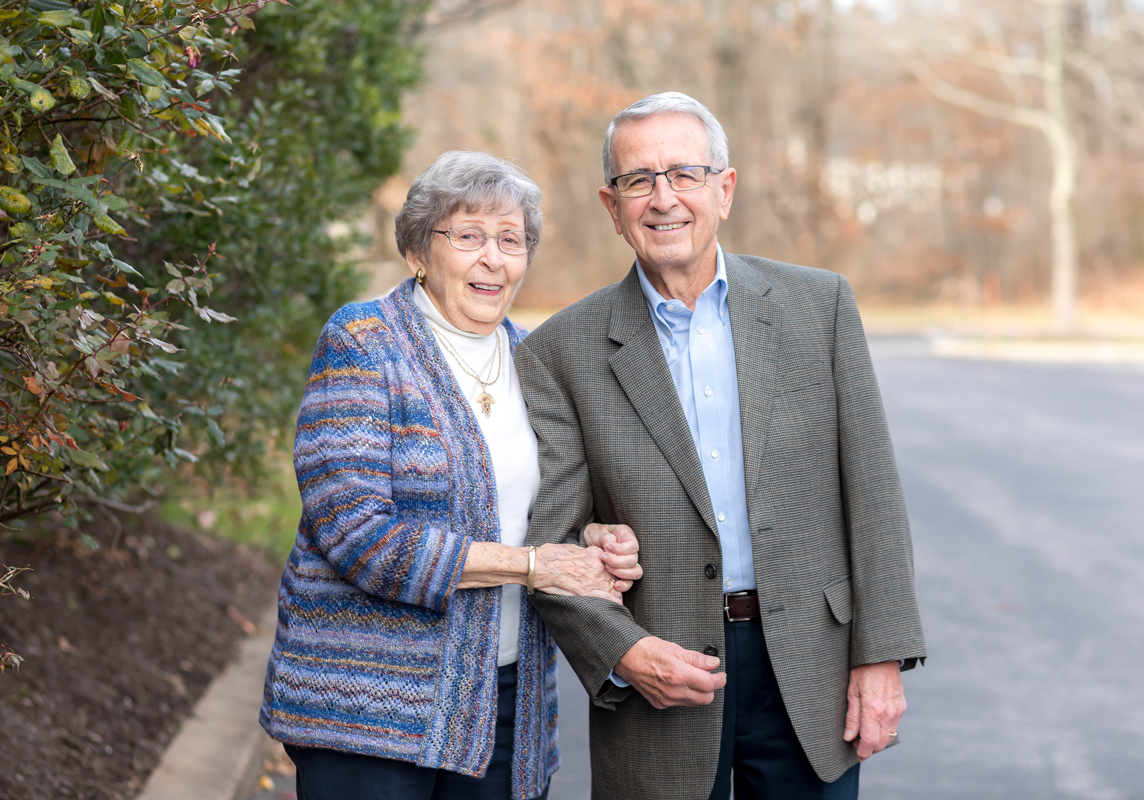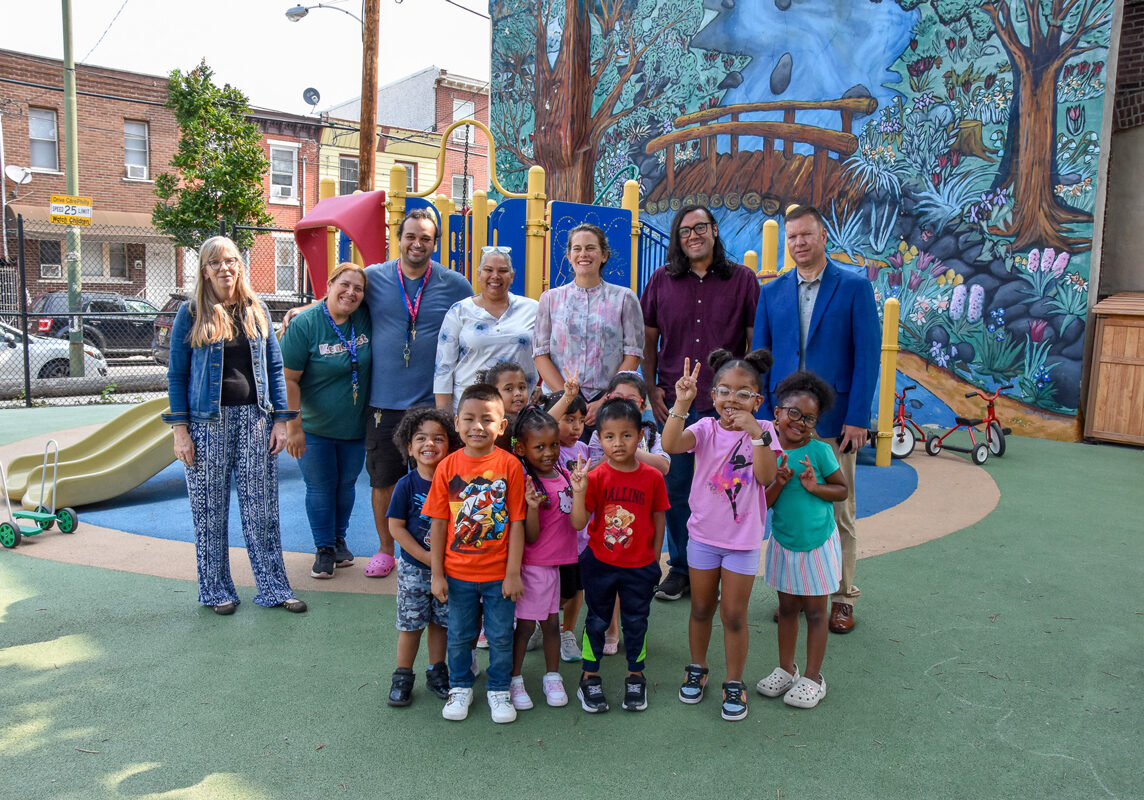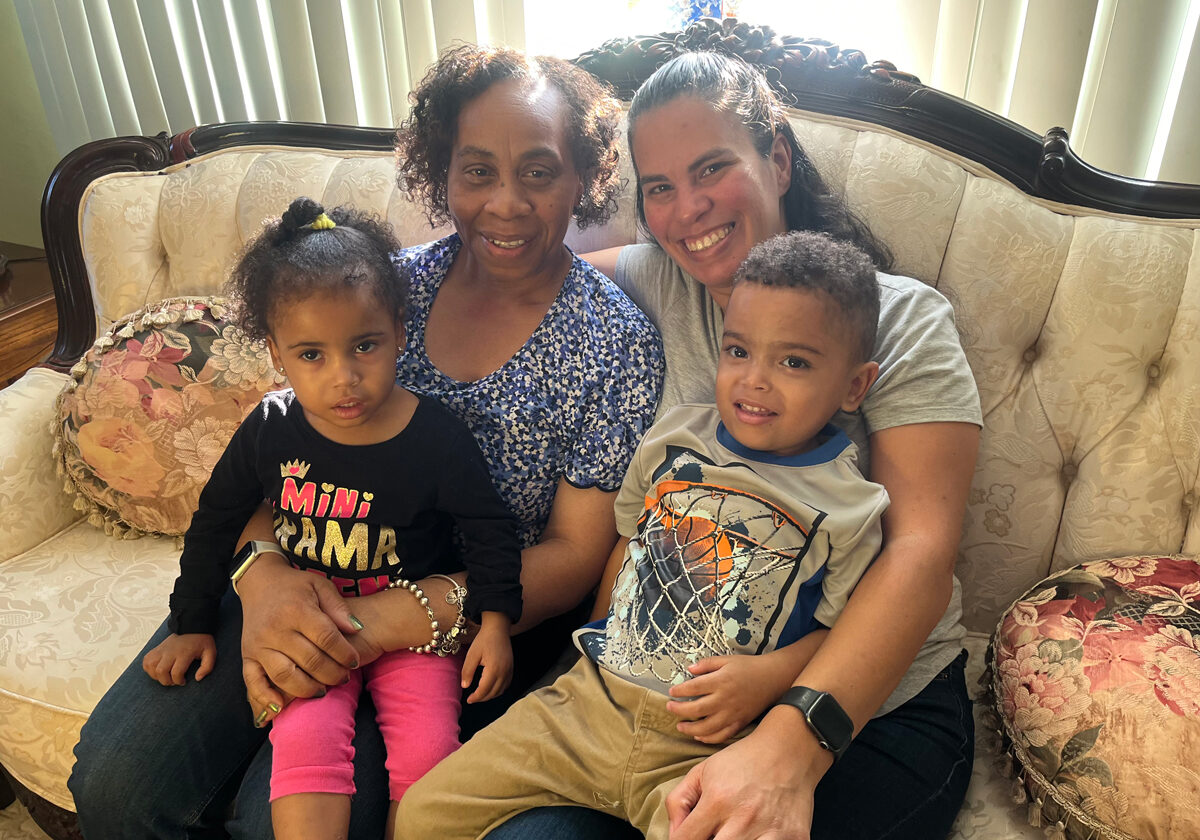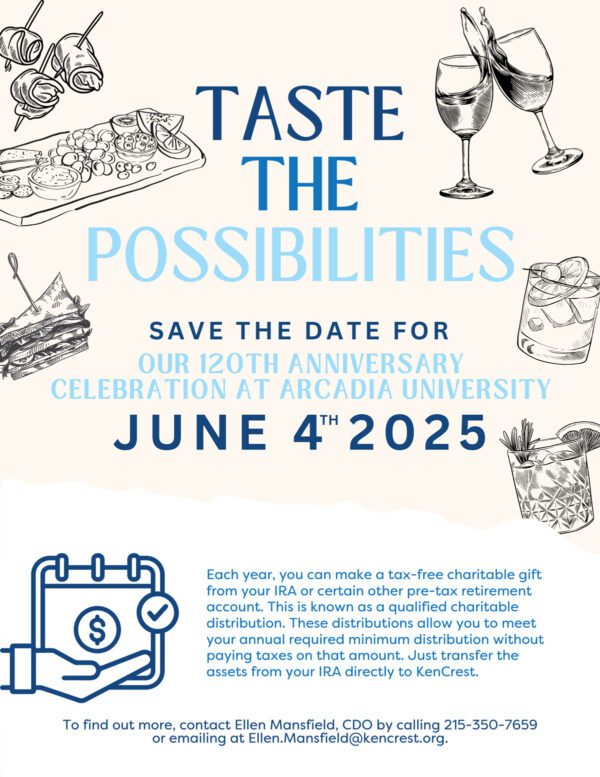IN THIS ISSUE
The seventh issue of KenCrest’s Possibilities Magazine is a celebration of innovation and care. It showcases a mother who, despite trauma in her life, found the strength to care for her medically fragile son, the journey of two sisters who found a better life through Lifesharing, and the importance of Legacy Giving. It also highlights how KenCrest's New Business Ideas are not just ideas, but solutions that bridge the gap in care for those with IDD. These stories underscore our commitment to the families we serve and our innovative approach to meeting their needs.
Letter To The Editor
As we revel in the joy of the holiday season and prepare to turn the calendar to a new year, it’s a time for reflection and connection with those who matter most—our family, friends, and communities. At KenCrest, we see daily how vital these connections are, especially for the medically fragile children and individuals with disabilities in our care.
In this edition of Possibilities, you’ll read about the power of connection—whether it’s a mother finding deep purpose in caring for her child in our Transitional Care Home or two sisters who, through Lifesharing, found love, stability, and a new life.
Our work at KenCrest is about bridging gaps in care and building relationships. KenCrest’s New Business Ideas aims to strengthen community connections for individuals with intellectual and developmental disabilities (IDD), ensuring they can access the support they need to thrive. These stories highlight the profound impact of connection and how it can change lives.
As you reflect on these stories, I encourage you to consider supporting KenCrest’s mission. Your donation today helps KenCrest provide critical services at a moment’s notice while including KenCrest in your will ensures those we support can build brighter futures like the ones you’ll read about in the coming pages, futures filled with hope, comfort, and connection.
Together, we can continue to create brighter futures for the children and families who need us most.
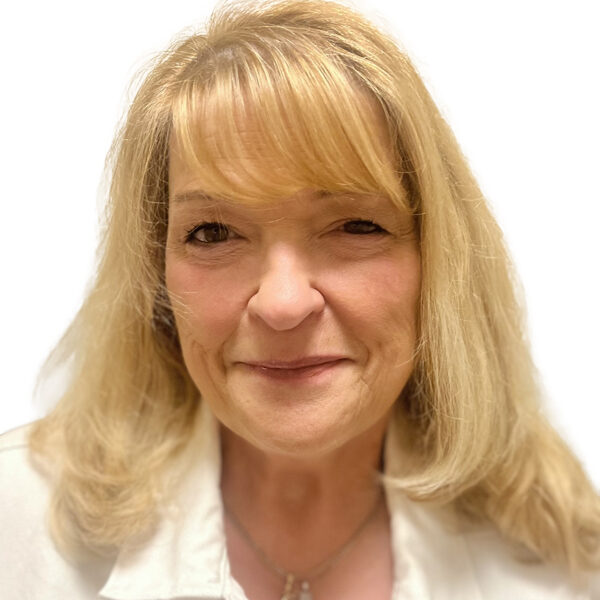

Rose Kehoe
Executive Director of Healthcare Services Nursing
KenCrest has long been a leader in providing comprehensive support for individuals with intellectual and developmental disabilities (IDD). In 1911, Deaconess-in-charge Sister Maria Roeck and the KenCrest board purchased a farm in Phoenixville, PA, and turned it into a home and dormitory for children with Tuberculosis called RiverCrest. Throughout the years, RiverCrest grew, becoming a haven for children and adults with intellectual disabilities.
However, in 1986, KenCrest decided to depopulate RiverCrest and move the residents into the surrounding communities before listing the land for sale. This decision was made to provide a more integrated living experience for the residents, allowing them to be part of the broader community at a time when segregation was still the norm.
In 2001, 90 years after its purchase, KenCrest officially sold the RiverCrest location—otherwise known as Sister Maria Roeck’s “Place in the Sun” for children of Kensington—for $6 million. That money went into an endowment that KenCrest still uses today. In 2019, KenCrest launched a grant opportunity to fund new business ideas through service, delivery, and innovations to develop new supports and programs that benefit KenCrest’s individuals and blaze a new trail for the human services community.
These efforts focus on fostering independence, promoting community inclusion, and addressing evolving needs—demonstrating that going above and beyond is embedded in KenCrest's mission.
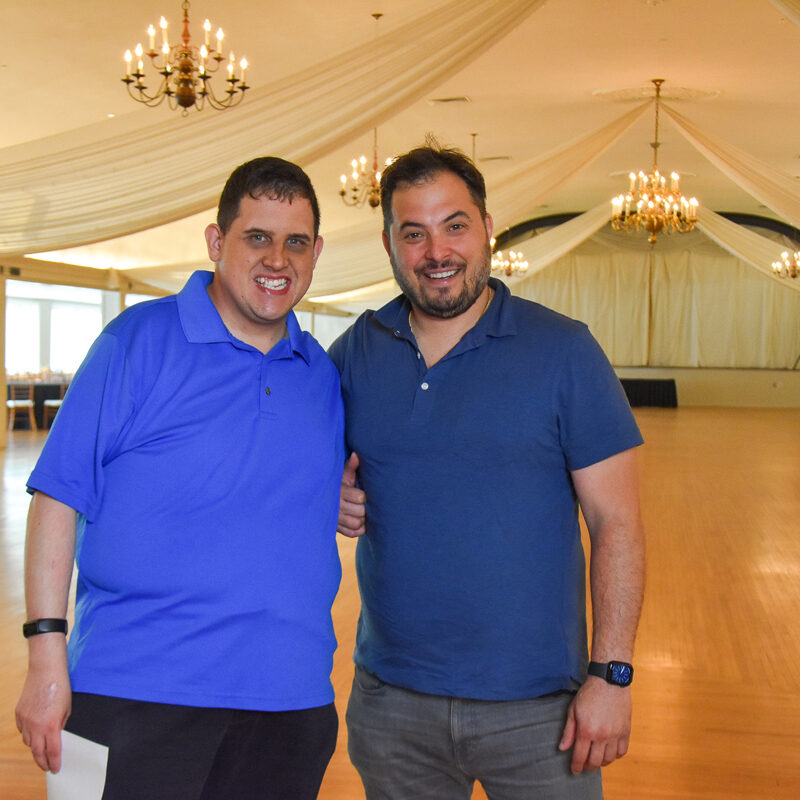
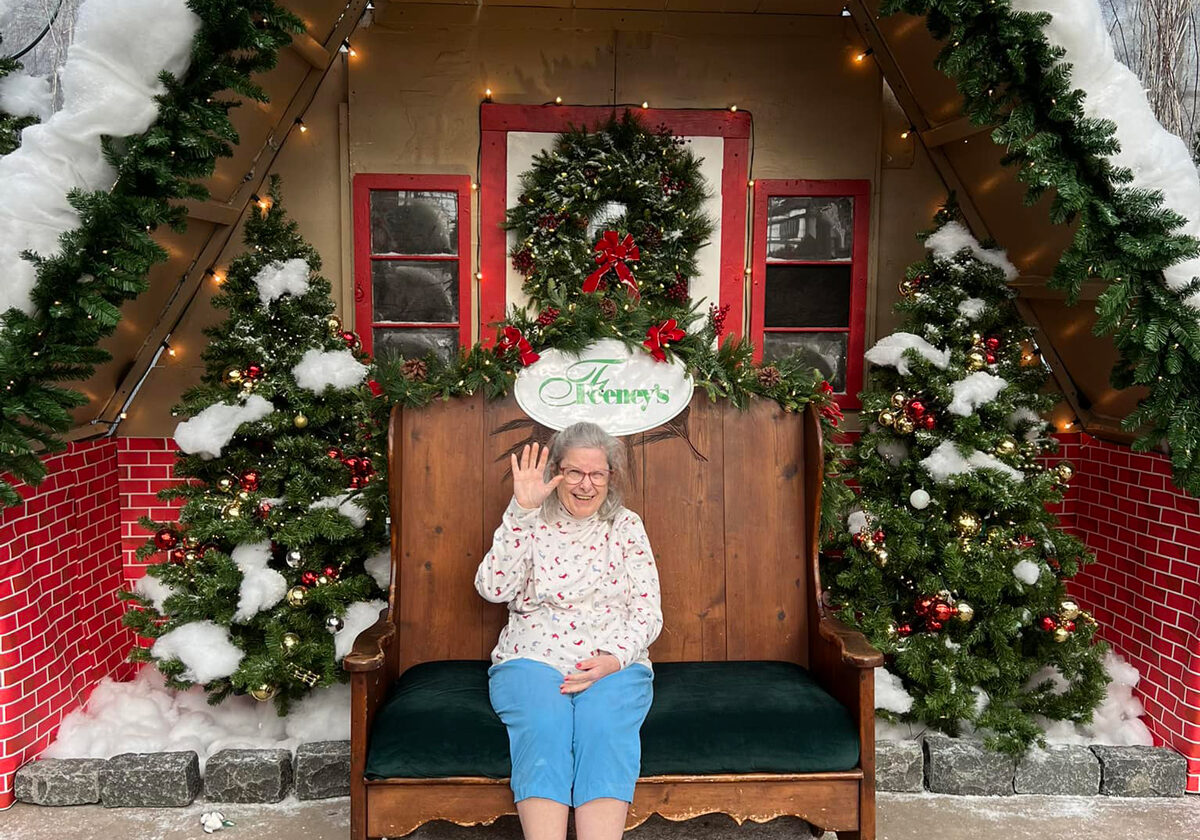
The Importance of Innovation in IDD Support
Supporting individuals with IDD requires more than a one-size-fits-all approach. Each person has unique challenges, abilities, and aspirations. KenCrest’s New Business Ideas (NBI) initiative helps do just that by providing programs that address those unique challenges and help them achieve their goals.
At the heart of these innovations is the belief that everyone, regardless of ability, should have access to meaningful opportunities, autonomy, and a rich quality of life. As the needs of people with IDD change over time, KenCrest understands that its approach must also evolve. The NBI initiative actively seeks ways to bridge gaps in care, create new opportunities, and offer solutions that adapt to the realities of the individuals it supports.
Programs That Make a Difference
Several essential programs have emerged from KenCrest’s NBI initiative, each designed to empower individuals with IDD while pushing the boundaries of what’s possible in terms of independence and community involvement.
Remote Possibilities is in its second year as an NBI initiative that uses technology to empower the individuals we support to live more independently. People with IDD can receive assistance with taks by integrating sensors, adaptive devices, and remote support systems. This helps them to maintain their autonomy and privacy. This program recognizes that technology can be a game changer in enhancing independence while ensuring safety and comfort.
Along with Remote Possibilities, KenCrest kickstarted its Smarter Living Home last year to integrate technology into daily living environments. The home is a model for all the technologies people can receive to make their lives more efficient and independent. The house features ADA-compliant countertops, open kitchen shelving, a drawer dishwasher, smart kitchen appliances, tilt mirrors, hand-sensored faucets, and so much more. Individuals can test different products to see if they would work for them before purchasing them.
KenCrest’s Daysharing initiative fosters meaningful relationships between people with IDD and retirees or volunteers within the community. By facilitating these connections, the program allows individuals to engage in shared activities, develop friendships, and become more integrated in their communities. This initiative not only enriches the lives of people with IDD but also promotes inclusivity by inviting members of the broader community to play an active role in their support.
The Ticket to Work program connects those we support with free employment services to help them prepare to work and understand their benefits. Ticket to Work is a federal program of the Social Security Administration designed to help people best understand their Social Security benefits, and KenCrest is an organization that implements it for those we support. Those involved with this program have access to career and benefits counseling, vocational rehabilitation, resume development, interview preparation, job placement, and training. ...
Thank you for joining the KenCrest family to celebrate the 2024 Community Champions awards! This was our 9th annual event, which was held on October 2, at the RiverCrest Golf Club in Phoenixville, PA. Community Champions is our way of giving thanks to the individuals, organizations, and community partners who go above and beyond to support KenCrest's vital work. This year we were honored to recognize 12 Community Champions and 12 Honorable Mentions. It truly takes an entire community to bring KenCrest's mission to life and these Champions are leading the way!
OUR SPONSORS
Jack Archambault
Arlington Heritage Group
Marian Baldini & Larry Filtz
Sabina Baker-Tegeder
Melanie Brennan
James & Mary Jane Brenneman
Merri & Drew Brown
Pat & Bill Bush
Matthew & Patricia Busillo
Maureen Catona
CBIZ
Conlin's Print
Aruna Conteh
Mary Beth Conrad
Jane Cording
Delta-T Group
Jenny & Patrick Doyle
Karen Feeney
Kristin & Wayne Fritzinger
Rev. Alina Gayeuski
Rev. Daniel Smith
Carol Hammarberg
Friends of Joe Hohenstein
Charles Horn III
John & Melissa Howe
Paul & Martha Jablow
John J Bryers Funeral Home
Erica Jordan
Colleen Kelly & Paul Hisem
Cathy Kriebel
Aurora Kripa & Jesse Fells
Ellen & Ed Mansfield
Ruby Martinez
Toni McNeal
Miller, Turetsky, Rule & McLennan
Bill & Rose Mueller
Jim & Elaine O'Connor
AnnMarie & Cameron Pendleton
Radius RX Direct
Reformation Lutheran Church (Media, PA)
Joy & Rob Reiss
Alimamy Saccoh
Lucy Sanvitale
Pam & Mike Schuessler
Ethel Serianni
Ann Sheafer
Kellie & Kevin Smith
Melinda South
Kathy & Paul Trumbore
United States Roofing Corp
Jackie Vey
Tom Wakeley
Christina Wright
Amy and Missy, two sisters with intellectual and developmental disabilities (IDD), faced an uncertain future when their lives took an unexpected turn. They had spent their lives sharing a room in a small home, and when their parents passed away, they lost the only caretakers they’d ever had. With the help of KenCrest’s Lifesharing program, their world changed for the better.
KenCrest’s Lifesharing program connects individuals with IDD to caring families who open their homes and hearts, offering not just shelter, but a sense of belonging. For Amy and Missy, it meant finding a loving, supportive environment with Janeal and Jay Murrey, who were determined to help them thrive.
From the moment Janeal and Jay met Amy and Missy, their commitment was unwavering. "We felt we had something to offer," Janeal said. "We’re blessed to have the space and opportunity to welcome them into our home." After several meetings to ease the transition, Amy and Missy moved in, and the Murreys worked to make them feel as comfortable as possible. Slowly but surely, a strong bond formed, and what began as an act of kindness evolved into something much deeper—a family.
Almost immediately, Janeal began renovating the sisters’ bedrooms so they felt comfortable and welcomed in their new space. She replaced the flooring and bought new beds, dressers, small refrigerators, and TVs. Janeal made sure to ask the sisters what their favorite colors were—Missy loved red, and Amy preferred blue. The sisters' joy was evident when she surprised them with new comforters and toiletry bags in those colors. Missy’s smile widened as she marveled at her red-themed room, exclaiming, “How did you know?!”
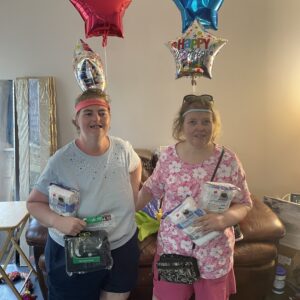
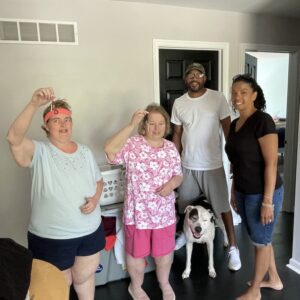
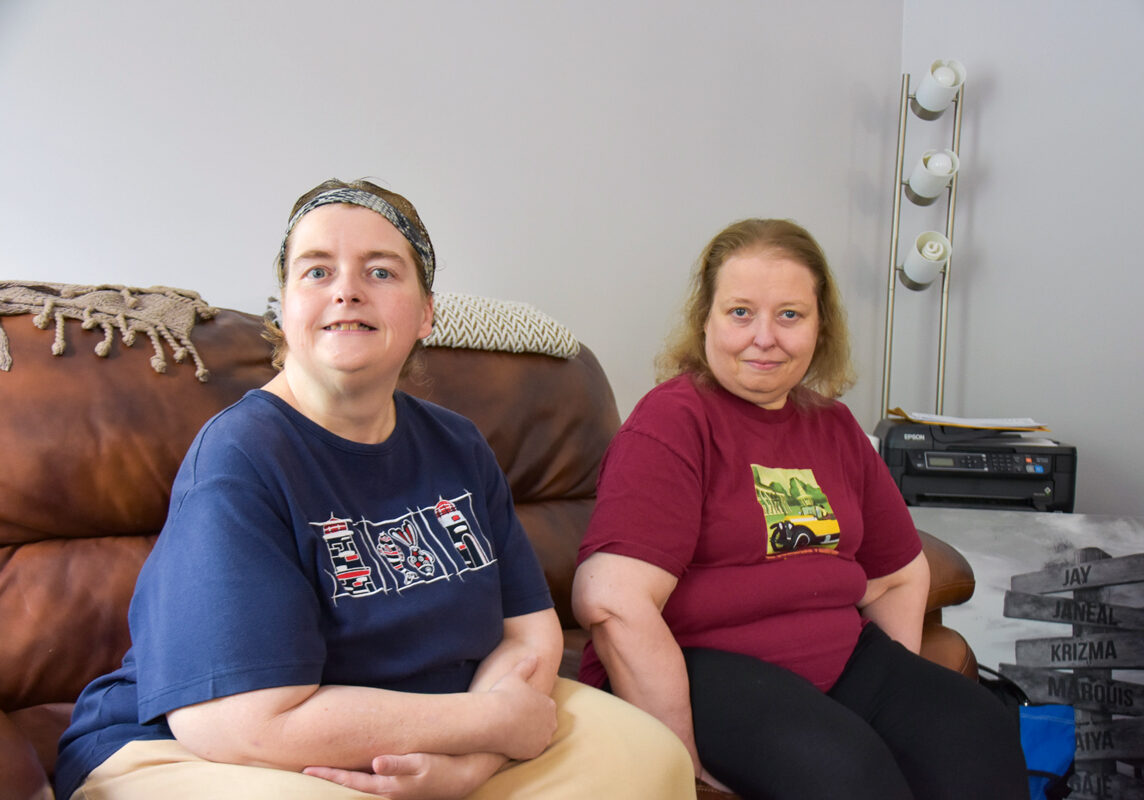
KenCrest’s Lifesharing program is about much more than putting a roof over someone’s head—it’s about fostering independence, improving health, and ensuring that individuals with IDD live their fullest lives. Janeal, a certified nurse by training, made an enormous impact on Amy and Missy’s health. Before moving in, the sisters hadn’t seen a doctor in years and struggled with maintaining their medications. Under Janeal’s care, their health transformed. They lost weight, improved their A1C levels, and now take their medications regularly.
Beyond health improvements, Janeal’s support helped the sisters gain a sense of purpose. She connected Amy and Missy with Handi-Crafters, a job training program that gives individuals the skills needed to find meaningful employment. "They started a two-week program where they go through different trainings to gain skills they need to get a job," Janeal shared, proud of their progress.
The journey hasn’t always been easy. Having shared a bedroom for most of their lives, Amy and Missy initially struggled with the idea of living separately in Janeal’s home. With the Murreys’ constant support and encouragement, the sisters gradually adapted, overcoming their fears and embracing their new surroundings. "At first, I was nervous," Janeal admitted. "We had originally planned to take in just one person. When we learned about the sisters and their bond, we knew we had to help keep them together."
Janeal’s dedication to Amy and Missy did not go unnoticed. For her outstanding commitment, she received a Community Champion Award. Her selflessness and dedication exemplify the profound impact Lifesharing can have on individuals with IDD, offering them a sense of security, empowerment, and, most importantly, a family. ...
Help Us Explore Possibilities, Mobilize Resources, and Empower Dreams
Shymira Chandler always felt different. Born with a cleft palate, a condition that affects the upper lip and roof of the mouth, Shymira was unlike her family, her peers, and others in her community. Growing up in Philadelphia, where few people knew about her condition, she was often the target of teasing and bullying. Classmates whispered about her in the halls, and some even resorted to physical fights because of her facial differences.
Her family didn’t fully understand her struggles, and neither did her peers. Shymira felt completely isolated and alone in her experiences. The constant emotional and physical attacks led her to develop deep anxiety and depression. Leaving her house became a challenge, and by the time she was 16, she had retreated into herself, barely engaging with the outside world. The emotional toll of her childhood left her feeling hopeless and, at times, suicidal.
“I never had anybody who was different around me growing up,” Shymira recalls. “Everyone was normal, and it was hard to accept. My mother didn’t want me to go outside, and I didn’t realize until I was older that she was trying to protect me. She didn’t know how to do it, so she did what she could.”
At 17, Shymira became a mother for the first time, giving birth to a daughter who brought a new light into her life. She felt a profound love for her baby girl, and she knew she needed to make changes for her child's sake. She began practicing self-care, writing love notes to herself, and slowly facing her fears. But a few years later, when her son Mason was born, Shymira truly found her life's mission.
Mason entered the world prematurely, weighing just three pounds. He couldn’t take a bottle by mouth and needed a Gastrostomy Tube (G-tube) to help with feeding and a tracheostomy to assist with breathing. This little boy was born medically fragile, and Shymira, having faced so many struggles of her own, understood immediately that her journey had prepared her for this moment. Her purpose was clear: she would be the strongest mother and advocate for Mason, making sure he knew that his differences made him unique and, more importantly, loved.
“Looking back at all the things that I didn’t have growing up, I make sure I give him,” she says. “I went through pain and trauma, but now I use those experiences to support him. I have a great connection with my son, and it’s beautiful. I love my children, and I am glad that I got the experience in this lifetime to understand that everybody is different and unique in their own ways. Just having him is a breath of fresh air because now I can teach him how to love himself, and he is teaching me more and more every day.”
Mason spent almost his entire first year in St. Christopher’s Hospital for Children before Shymira decided to either have Mason remain in the hospital or move him to KenCrest’s Children’s Transitional Care Home, where he could receive 24/7 skilled nursing care. At first, she was terrified. What if Mason forgot her? What if he wasn’t happy there? But once she met the KenCrest team and saw the care they provided, she knew she had made the right choice. Mason thrived in the supportive environment, surrounded by people dedicated to helping him grow and become the best version of himself.
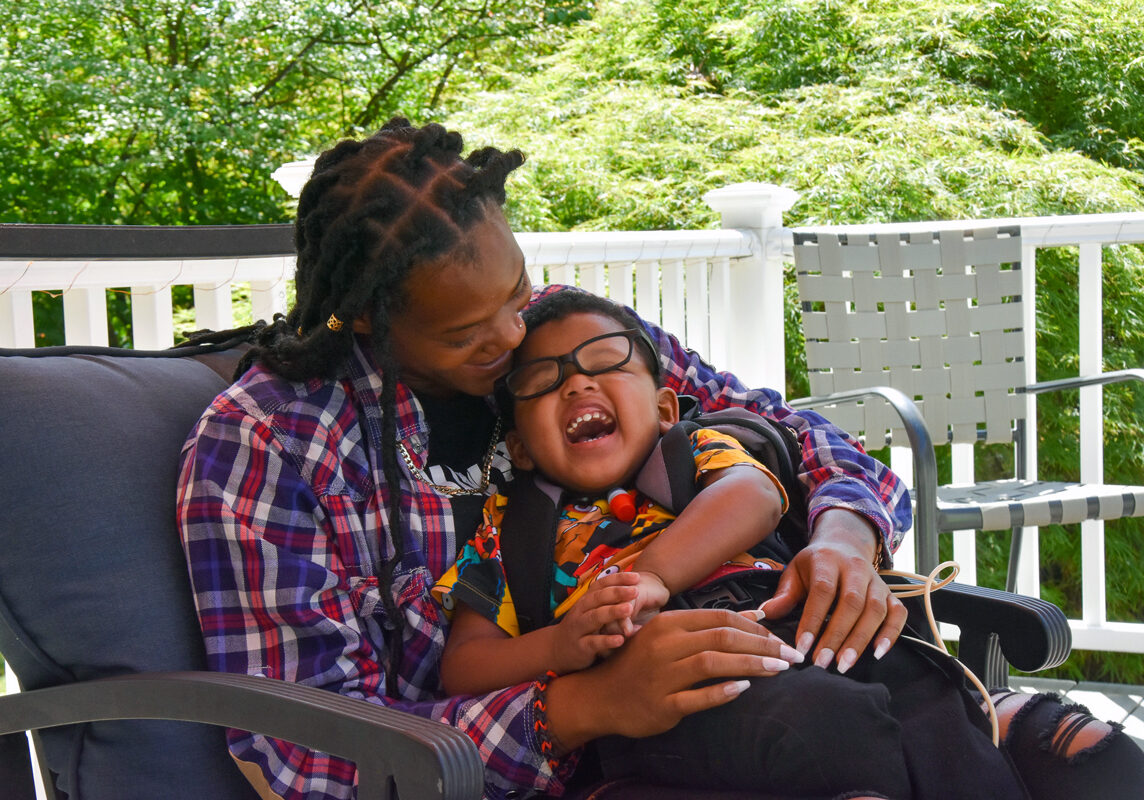
Since joining KenCrest, Mason has made remarkable progress. He’s walking and exploring the world around him with excitement. Unlike the restricted environment of the hospital, where he was confined to a bed, at KenCrest, Mason is free to move and play under supervision.
“I didn’t expect him to start walking until he was two,” Shymira laughs. “But one day, he was crawling, and the next minute, he was up and walking. His growth has been so much faster than anyone expected, and I’m so thankful for what KenCrest has done for him. I go to bed every night knowing that he is safe, that someone I trust is taking care of my baby the way I would.”
KenCrest operates two Transitional Care Homes for medically fragile children in Pennsylvania, pioneering a care model that combines skilled nursing with a warm, family-like environment. The organization ensures that children like Mason can experience a typical childhood—attending school, going on field trips, and playing in parks—while still receiving the medical care they need. Plus, parents are trained throughout the process on how to care for their child so they are prepared for the transition home. ...
WHAT'S HAPPENING IN HUMAN SERIVCES
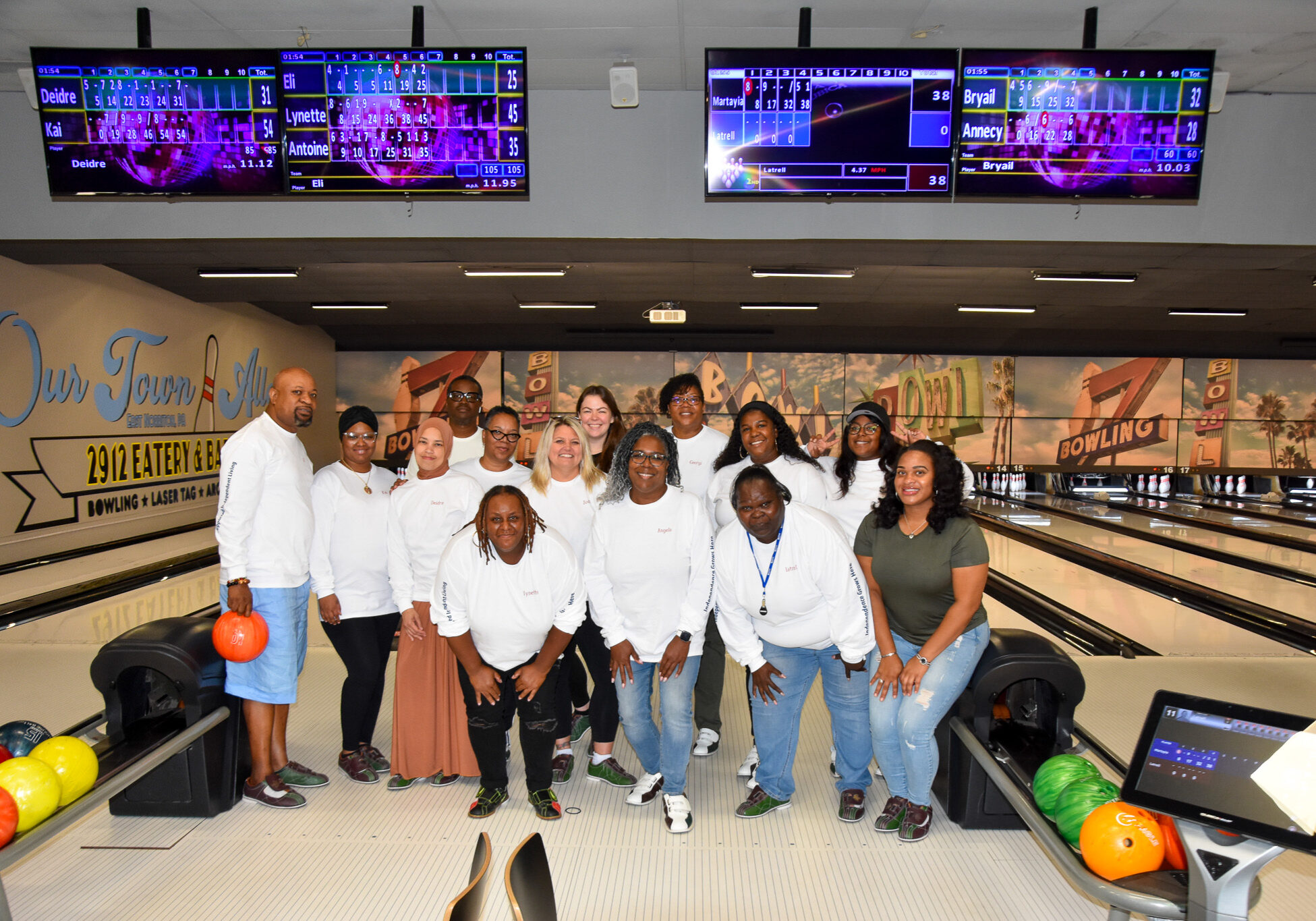
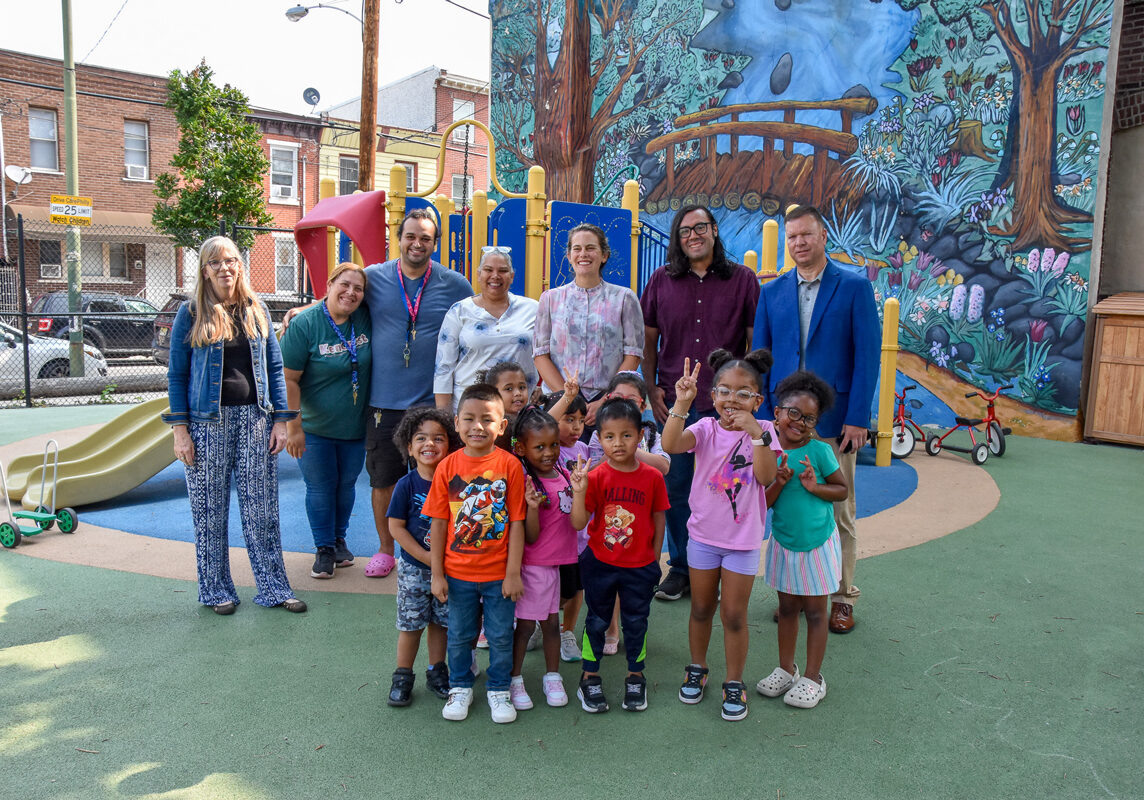
Services for individuals with intellectual and developmental disabilities (IDD) have historically been grossly underfunded. However, several significant developments in Pennsylvania and Delaware are signaling that change may be afoot thanks to greater awareness and advocacy efforts.
Pennsylvania’s 2024-25 fiscal year budget includes $354 million from Federal and state combined in new funding for IDD services and received bipartisan support. This money will help address urgent issues like the emergency waiting list which has over 13,000 individuals waiting for services, including 6,000 in the emergency category. An expected $10.6 billion surplus by June 30 next would open the door for more funding adjustments and elevate the need for a legislative focus on human services.
A concern moving forward is financial strain due to performance-based contracting (PBC). Under PBC, providers must meet certain performance metrics, which add operational expenses and may affect how much new funding goes directly to support the IDD community. Some funds might be reserved for potential settlement agreements related to PBC disputes. At KenCrest, we have been preparing for PBC for several years to ensure continuous, high-level support for every individual and family in our community.
Meanwhile, in Delaware, the Joint Finance Committee approved a request to match DSP reimbursement rates to Delaware’s $15 minimum wage. A new rate study taking place next year will provide the legislature with critical data regarding the actual costs of providing high-quality care for people with disabilities.
These developments show a positive shift toward better support and recognition for IDD services in Pennsylvania and Delaware. Our continued advocacy is essential to building on this momentum and ensuring these commitments lead to meaningful improvements for everyone within the KenCrest community.
On November 6th, 2024, Donald Trump was elected as the 47th president. While his campaign steered clear of disability issues, advocates are preparing for the administration to push major changes to Medicaid and other programs.
We urge everyone to continue advocating for those with disabilities. Your voice and support are crucial in making sure these changes lead to real, positive impacts. Together, we can help create a more inclusive and supportive environment for all.
At KenCrest’s Medically Fragile Children's Transitional Care Homes, the connection between caregivers and children goes far beyond daily medical support. It becomes a lasting bond that lives on in the hearts of caregivers, children, and families even after these little ones move home. This connection is not only vital to the children’s progress and healing but also a source of resilience and confidence for families as they step into the next chapter of care.
Yvonne, a childcare worker with two decades at KenCrest, and Rebeca, a nurse with 12 years of experience, first met Jose and Maria when they were medically fragile infants, each dependent on ventilators and a tracheostomy to breathe. From day one, Yvonne and Rebeca poured their hearts into caring for the twins, celebrating each small milestone and dreaming of their eventual progress. As Rebeca recalls, watching Jose and Maria grow from relying on medical equipment to learning to communicate and walk was nothing short of miraculous.
But for Yvonne and Rebeca, their relationship with Jose, Maria, and their family didn’t end when the twins transitioned home. Yvonne has become known as the twins’ “abuela” (grandmother), a title she holds with pride. She regularly FaceTimes with the family, celebrating birthdays, milestones, and simple daily joys. For her, Jose and Maria are more than children she cared for—they are family.
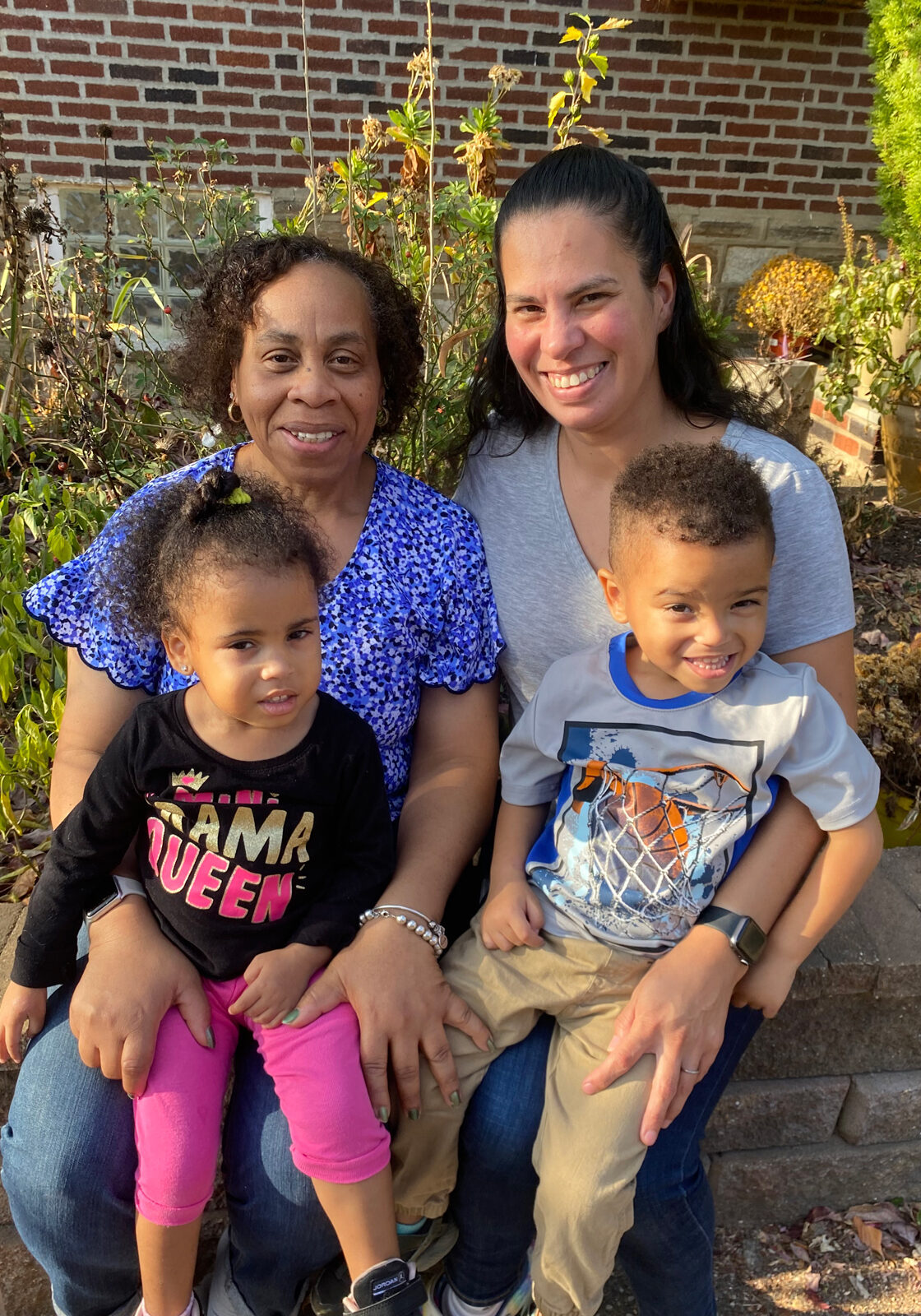
Rebeca’s connection with the family is equally profound. Recognizing the challenges that can arise after transitioning home, Rebeca didn’t hesitate to continue supporting the family. She helps bridge language barriers, assists in arranging appointments, and has even worked part-time in the family’s home, providing care and support as they adjust. Her efforts ensure that Jose and Maria’s mother feels empowered to navigate the medical system and give her children every opportunity to thrive. With Rebeca’s bilingual skills and deep understanding of the children’s needs, she has become a trusted partner, advisor, and friend to the family.
These bonds have brought heartfelt joy to everyone involved. Yvonne fondly recalls a special birthday celebration where she joined the family for lunch, feeling truly embraced as their “abuela.” Rebeca, too, treasures moments like setting up a pool for Jose and Maria to enjoy despite their medical complexities. She remembers the twins’ laughter and delight as they splashed around, simply being joyful children.
KenCrest’s commitment to lifelong support and relationship building fosters not only an environment where children like Maria and Jose can flourish but also feel empowered, cared for, and capable even after transitioning home. Through birthday parties, pool days, and video calls with family members, children at KenCrest experience childhoods full of joy, safety, and love like any other. We’re not just part of a child’s journey; we’re part of the family, and that’s a bond that will always last.
